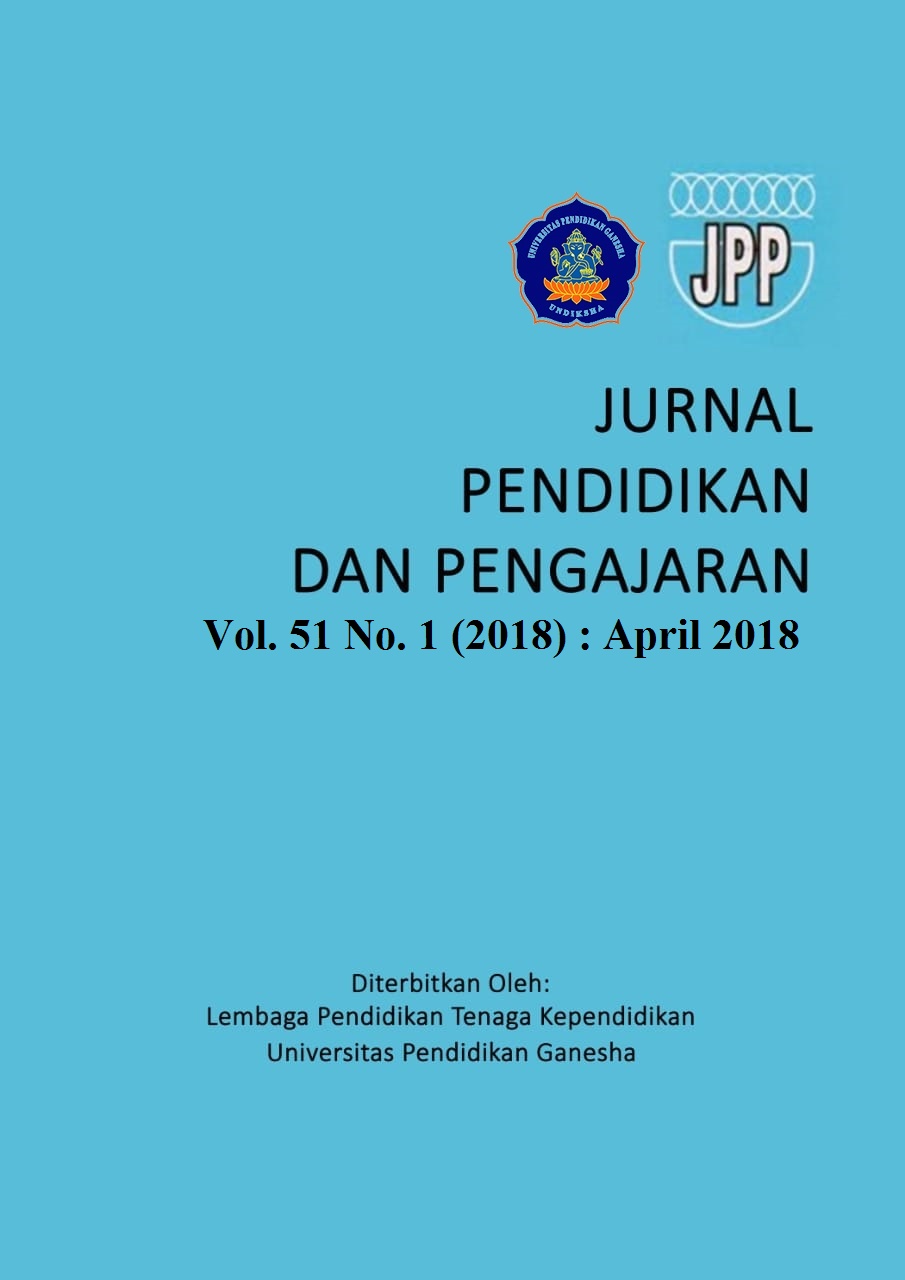Evaluation of inclusive education at Quantum Preschool
DOI:
https://doi.org/10.23887/jpp.v51i1.12603Keywords:
Program evaluation, Inclusion, Early ChildhoodAbstract
Abstract: This research is aimed at evaluating the inclusion educational program at Quantum Preschool, East Bekasi. Method of research applies mix method by designing CIPP model (Context, Input, Process, Product). The instrument of research utilizes a written guideline by means of observation and interview. Data are collected in accordance with the design of CIPP model. Subsequently, the data are analyzed quantitatively and qualitatively. The result of evaluation (1) percentage of implementation of component for context, the institutional background is 100% and learning atmosphere is 98.5%. Quantum Preschool has its own vision, mission, objective, status of institution, learning atmosphere, and curriculum since the year of 2007 (2) percentage of component for input, own facility infrastructure is 18.16%. The lack faced by the preschool is non availability of parking area for parents, curriculum is 100%, percentage of educating staff is 62.5% because some teacher do not have the background of Early Childhood Education, educational participants is 57.14%, financing is 92.8%, support of parents is 92% (3) percentage of component for process: planning is 100%, implementation is 92.5%, assessment is 90%, program development is 98.% (4) percentage of component: long-term program is 100% and short-term program is 82%.
Keywords: Program evaluation, Inclusion, Early Childhood
References
REFERENCE
Brewer, J. A. (2007). Early Childhood Education. USA: Pearson Education.
et.al, L. J. (2017). Environmental Barries to Participation of Preschool Children with and without Physical Disabilities. International Journal of Environmental Research and Public Health, 518.
Indonesia, U.-U. R. (2003). Undang-Undang Republik Indonesia Nomor 20 Tahun 2003. Jakarta: Indonesia.
Irena, e. (2011). Inclusive Culture in Pre-School Institutions. Unemploymed Special Educator and Rehabilitator, 1-2, 7-16.
J, B. J. (2013). Observasi Perkembangan Anak Usia Dini. Jakarta: Kencana Prenada Media Group.
Martinis Yamin dan Jamilah Sabri Sanan. (2013). Panduann PAUD (Pendidikan Anak Usia Dini). Jakarta: Referensi.
Miller, R. (1996). The Developmentally Appropriate Inclusive Classroom in Early Childhood. United States of America: Delmar Publishers.
Mudjipto, d. (2012). Pendidikan Inklusif . Jakarta: Baduose media.
Nasional, D. P. (2009). Tulkit LIRP-Merangkul Perbedaan: Perangkat untuk Mengembangkan Lingkungan Inklusif Ramah terhadap Pembelajaran. Jakarta: IDPN Indonesia.
Roshini Vettiveloo, e. (2008). A Critical Enquiry into the Implementation of the Montessori Teaching Method as a First Step Towards Inclusive Practice in Early Childhood Setting Specifically in Developing Countries. Contemporary Issues in Early Childhood, 2.
Sujiono, Y. N. (2012). Konsep Dasar Pendidikan Anak Usia Dini. Jakarta: Indeks.
Downloads
Published
How to Cite
Issue
Section
License
Authors who publish with Jurnal Pendidikan dan Pengajaran agree to the following terms:- Authors retain copyright and grant the journal the right of first publication with the work simultaneously licensed under a Creative Commons Attribution License (CC BY-SA 4.0) that allows others to share the work with an acknowledgment of the work's authorship and initial publication in this journal
- Authors are able to enter into separate, additional contractual arrangements for the non-exclusive distribution of the journal's published version of the work (e.g., post it to an institutional repository or publish it in a book), with an acknowledgment of its initial publication in this journal.
- Authors are permitted and encouraged to post their work online (e.g., in institutional repositories or on their website) prior to and during the submission process, as it can lead to productive exchanges, as well as earlier and greater citation of published work. (See The Effect of Open Access)





